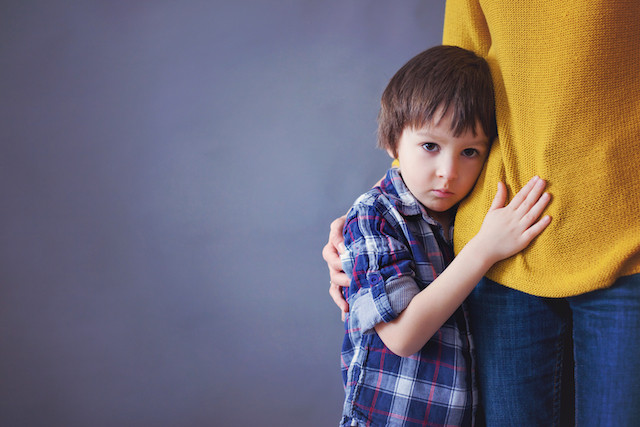Kanner jugend telefon (KJT), which offers an English speaking online service, reminded parents that children perceive the self-isolation situation differently, and seeing people in protective suits and masks could be stressful.
If a child shows altered behaviour such as nervousness, aggressiveness, sleeping problems, attachment or physical symptoms like headaches, stomach aches or nausea, KJT said that parents can respond by:
- Being there for your child, offering proximity
- Offering a structured daily routine
- If possible encouraging physical activity (cycling, playing ball) and spending time in the fresh air (while respecting a distance from other people)
- Ensuring healthy nutrition (stockpiling groceries is not necessary)
- Creating space to relax and play
- Reducing confrontation with media reporting to a minimum
- Explaining the situation to the child
- Showing the child how to protect itself (hygiene measures)
- Talking about the positive in this situation, for instance, people doing their best to help the infected to recover, neighbours helping one other, medical staff, garbage collectors, supermarket staff working to keep everything as normal as possible, focusing on the cases/numbers that are well or have recovered/the sick that come through the disease well
How do I explain the situation to my child/children?
- Be patient, listen attentively when your child talks about their preoccupations
- Answer questions honestly and tell them when you don't know something. Consider together where to get the information (look for trustworthy sources, like the health directorate)
- Communicate facts, explain in a child-oriented manner how to prevent infection, how to proceed if a family member or child shows symptoms. Explain what is being done to help the person and prevent it from spreading. Ensure that as a parent you are well informed and be wary of possible misinformation being spread for example through social media posts
- Explain why you are worried/stressed yourself
- Explain why visits to family and friends are not possible now

Making movement possible for your child is important during this period of self-isolation/quarantine. Photo: Shutterstock
What do I do in quarantine?
- Explain what quarantine is/means and that it is a protective measure
- Enable contact/exchange with family members/friends via phone, internet, social media or Skype, for instance
- Accept your feelings and those of your child. Being in quarantine/involuntarily being at home can cause many different emotional reactions. These feelings are normal reactions to the abnormal situation
- Continue to consider hygiene measures
- Maintain daily structure (adjusted), reorganise if necessary
- Accept help from outside (grocery shopping, medication, toys etc.)
- Get in touch with the school
- Making time span tangible (e.g. making calendars together, like an Advent calendar, and cross each day)
- Make movement possible, also indoors (e.g. indoor trampolines, skipping ropes, gymnastics)
- Try out relaxation exercises together
- Mental activity (reading, writing, puzzles, board games, homework)
- Maintain a positive attitude (gives confidence and security)
- Message the KJT parents' online help service, call SOS Détresse (45 45 45) or advise your child to call the Kanner jugend telefon contact number (116111) if feeling down
What are the hygiene measures to observe?
- Sneeze or cough into the crook of your arm or into a handkerchief, dispose of it immediately in a trash can with a lid
- Keep hands away from face (avoid touching mouth, eyes, nose)
- Keep distance to people who cough, have a cold or fever (we are still in the flu and cold season too)
- Avoid physical contact with other people (shaking hands, hugs)
- Wash your hands regularly and for at least 20 seconds with soap and water (especially after blowing your nose, sneezing, coughing)
- Show your kid how to apply these properly
How do I deal with my own fear/care/restlessness?
- Try to see these emotional reactions as a normal reaction to the abnormal situation, not knowing causes anxiety in people, that is normal
- Try not to let these feelings overwhelm youFocus on the things you can control
- Inform yourself, build on facts, not on hearsay/myths
- Relaxation exercises, breathing exercises, yoga exercises (search online for these)
- Structure your own working day (as far as possible)
- Limit news consumption, view only trusted sources and at a fixed time in the new daily schedule
- Do what gives you a feeling of security
- Get fresh air (in the garden, on the balcony, at the open front door)
- Stay in the present--consciously perceive with all senses what is happening around you and avoid “what if” thoughts
